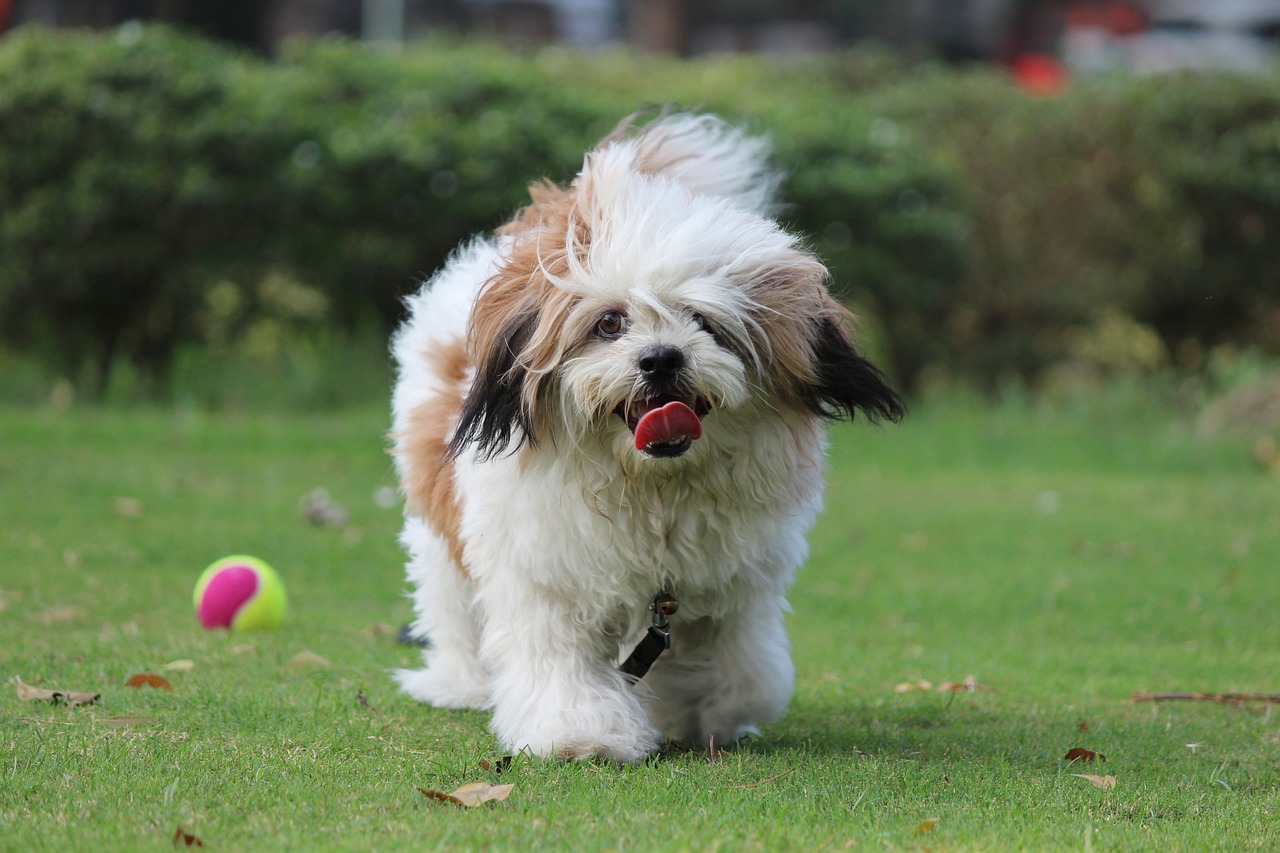The Lhasa Apso is a breed with a rich history, originally bred as a sentinel dog in the monasteries and palaces of ancient Tibet. With their keen sense of hearing and sharp bark, they were considered excellent watchdogs, alerting monks to any intruders. Beyond their historical role, Lhasa Apsos exhibit a variety of unusual habits that may seem quirky or peculiar to those unfamiliar with the breed. These habits blend their aristocratic heritage, their developed intelligence, and their distinct personality, which has been shaped by centuries of selective breeding for specific traits. This article will explore seven unusual habits that are commonly seen in Lhasa Apsos, offering insight into the unique behavioral traits of this dignified and somewhat mysterious breed.

1. “Singing” or Howling to Music
Lhasa Apsos have a peculiar habit of vocalizing along with music. This can range from howling melodically to certain tunes to making singing-like sounds when they hear harmonious notes. This unusual behavior is more than just a response to sound; it’s believed to be a display of their sensitivity to different tones and pitches, which was useful in their monastic sentinel duties in Tibet. This musical inclination not only highlights their unique auditory skills but also their ability to participate in the household environment in their own special way.
2. Showing Selective Affection
Lhasa Apsos are known for their selective affection. They often choose one or two favorite people to whom they show immense loyalty and affection, while being aloof or even indifferent to others. This trait stems from their origins as indoor watchdogs, where they were bred to be wary of strangers and fiercely protective of their masters. This selective bonding makes them excellent companions for those they choose, but it may require visitors and new acquaintances to earn their trust and affection over time.
3. Acting as “Doorbell” Dogs
Another unusual habit of Lhasa Apsos is acting as a “doorbell,” where they will promptly alert their owners to anyone approaching the door, often before any actual doorbell rings. This behavior is a direct line from their historical role as guard dogs in Tibetan monasteries, where any disturbance had to be announced. Their acute sense of hearing and natural vigilance make them exceptional at announcing visitors, which can be particularly helpful in large homes or for individuals with hearing impairments.
4. Spinning Before Lying Down
Lhasa Apsos often spin around several times before lying down. This behavior might have originated from the need to flatten grass or underbrush to create a sleeping area in the wild. Although now living in modern homes, the instinct persists as a comforting ritual that helps them feel secure and comfortable in their resting spot. This spinning can also help them assess their environment and ensure safety before settling down, reflecting their inherent cautious nature.
5. Exhibiting a “Cat-Like” Attitude
Lhasa Apsos are sometimes described as having a “cat-like” demeanor. They are independent, often enjoy high perches from which they can survey their surroundings, and they may display selective listening—acknowledging commands only when it suits them. This cat-like behavior underscores their self-sufficient nature and intelligence, traits that made them suitable for solitary guarding duties where immediate human guidance was not always available.
6. Obsessive Cleaning
These dogs can also exhibit an unusual habit of obsessive cleaning and grooming. Lhasa Apsos will often lick their paws and fur more meticulously than other breeds, which is a habit that helps them stay clean in environments where bathing opportunities might have been scarce. This behavior also aids in reducing stress or boredom, reflecting their need for mental engagement and physical cleanliness.
7. Burrowing and Nesting
Finally, Lhasa Apsos often display a burrowing or nesting behavior, where they gather blankets, pillows, or clothing to create a snug and secure area. This may be a leftover trait from needing to keep warm in the harsh Tibetan climate. It also provides a sense of security, reflecting their cautious nature and preference for protected spaces.

Lhasa Apsos are as complex as they are ancient, with habits that reflect their historical roles and the environments from which they originated. Understanding these unusual behaviors enhances the bond between owners and their pets, providing insights into caring for them in ways that respect their distinctive traits. While they may require patience and understanding, the unique habits of Lhasa Apsos make them fascinating and deeply loyal companions.
 Toledo, United States.
Toledo, United States.